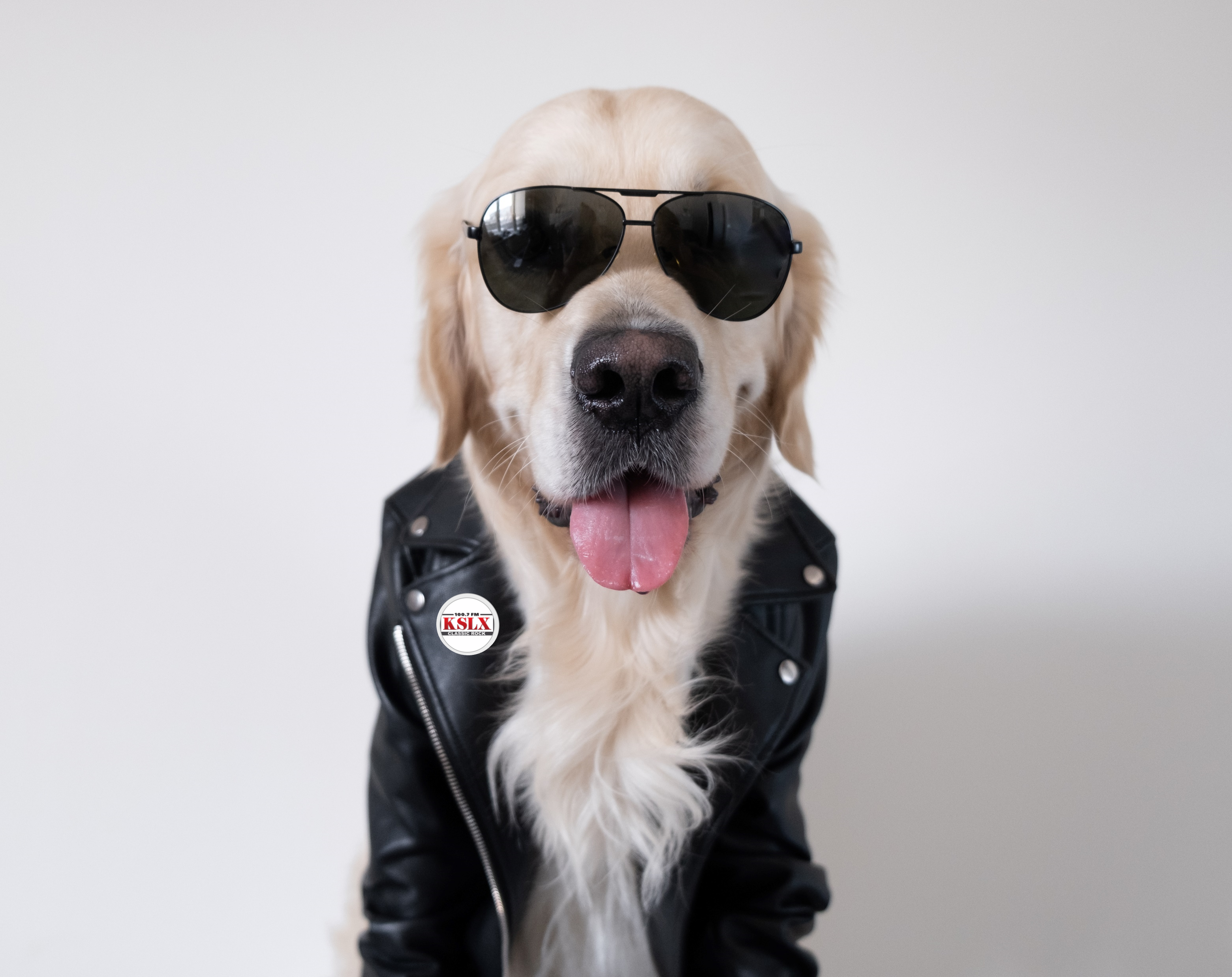
What is it with our love affair with dogs? It seems like if anything, Americans have only become more obsessed with their canine friends in recent years.
I suspect COVID has had more than a little something to do with that. After all, that long, painful period in 2020 (coming up on four years next month!) taught us a great deal about separation, anxiety, loneliness, and of course, companionship.
The statistics bear that out. The Washington Post reported in 2022 that north of 23 million American households – or one in five – adopted a furry friend during the throes of the pandemic.
Where do the numbers stand today? Forbes Advisor offers up the following numbers:
- Two-thirds (66%) of U.S. homes have a pet of one kind or another. That amounts to nearly 87 million households.
- Across all generations, dogs are the most popular pets, residing in more than 65 million households. In fact, Gen Zs are especially likely to own a dog.
- On average, it costs more than $1,500 each year to own a dog (includes boarding, vet care, and insurance).
- The pet economy is massive, led by dogs. Check out the annual spending on dogs (vs. cats), especially when you look at toys, grooming, and other discretionary expenses.
While the costs of owning a dog are skyrocketing, the other truth about the canine class is the fact that people of different backgrounds and socioeconomic status can agree on their love for dogs.
Most dog parents would readily admit they receive more than they give. Dogs humanize us, and teach us about unconditional love. On our worst days, our furry buddies are there to greet us, give us a lick, and jump happily around the place because we’re home.
No matter your politics, Democrats, Republicans, and Independents can agree on their love for their dogs. In fact, Donald Trump was the first U.S. President in over 150 years not to have a dog running around the Rose Garden. Joe Biden reversed the trend, but his dogs have had chronic behavioral problems since he took the oath.
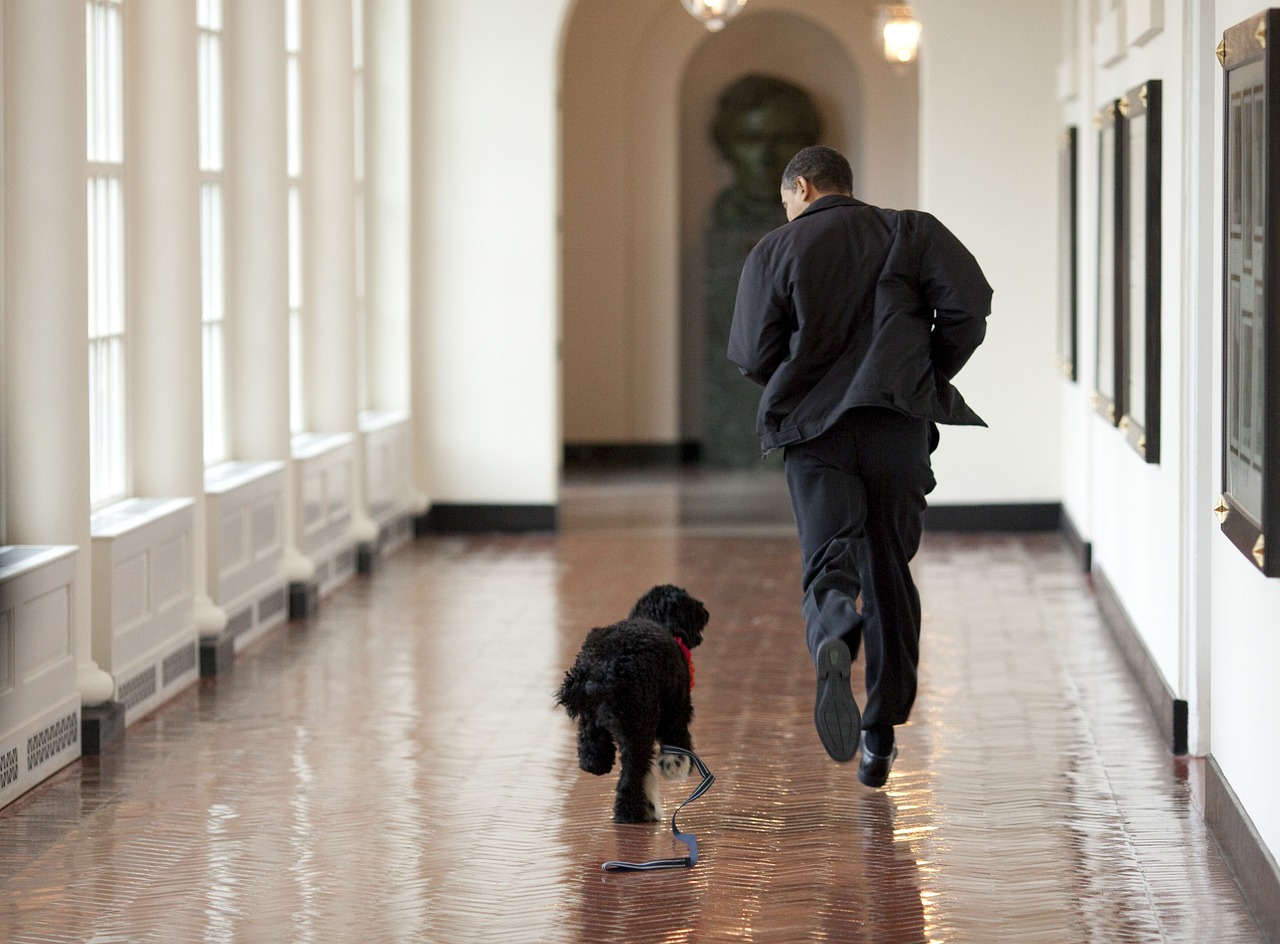
So, the popularity of dogs is indisputable. It’s a trait that common threads so many listeners. And yet, most stations do not get particularly active promotionally with dogs – or their owners.
Thee are notable exceptions, of course. Just across Lake Michigan, Sherman & Tingle on WDRV/Chicago have made their annual “Operation: Santa Paws,” a staple of the show, raising money each holiday season on behalf of our four-legged pals.
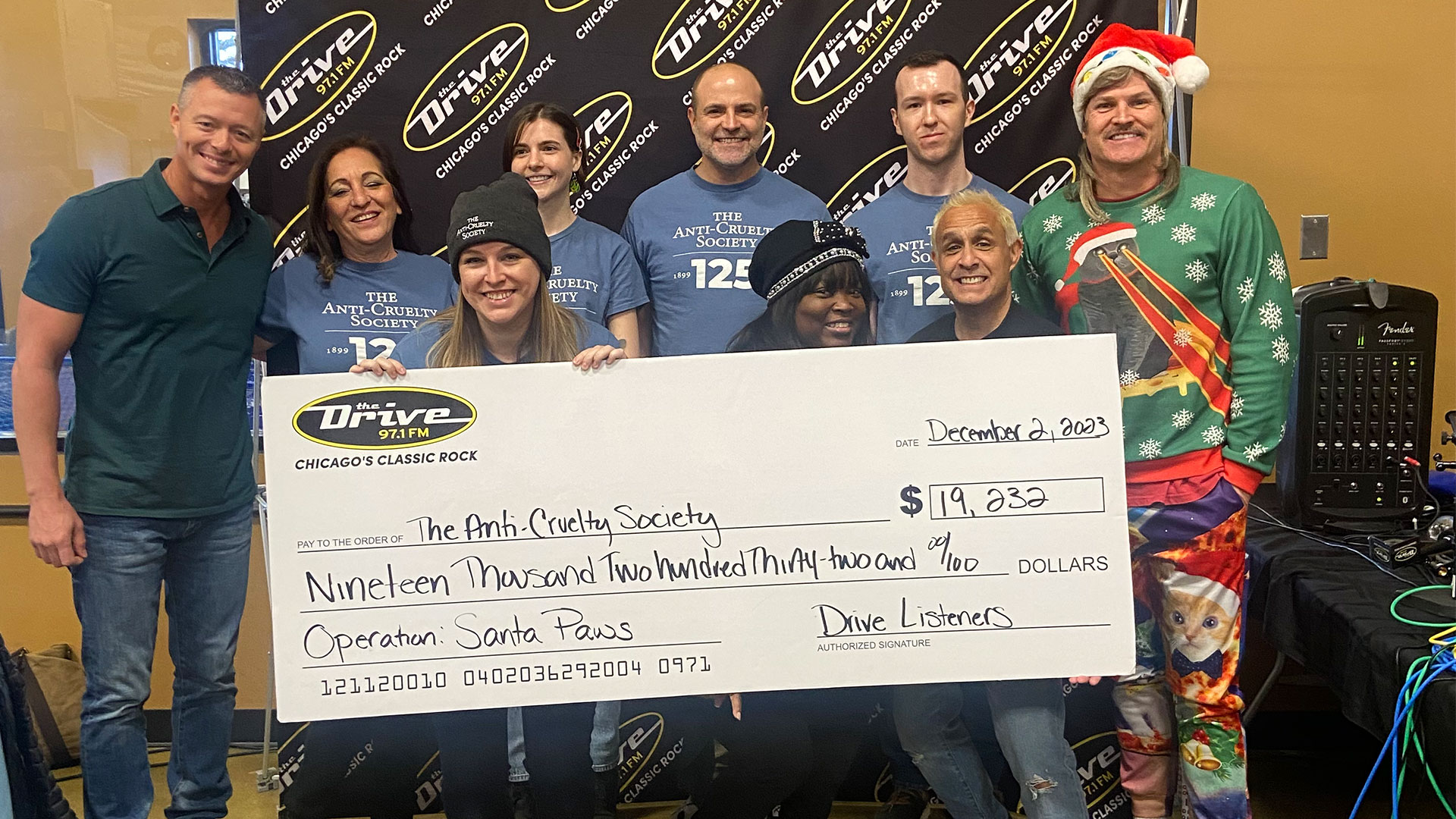
Audience donations fund food, supplies, toys, vet visits and other expenses directed on behalf of homeless dogs. Chicago’s Anti-Cruelty Society is the recipient of Sherman & Tingle’s fundraiser.
Back east, John DeBella hung up the headphones last year, capping an incredible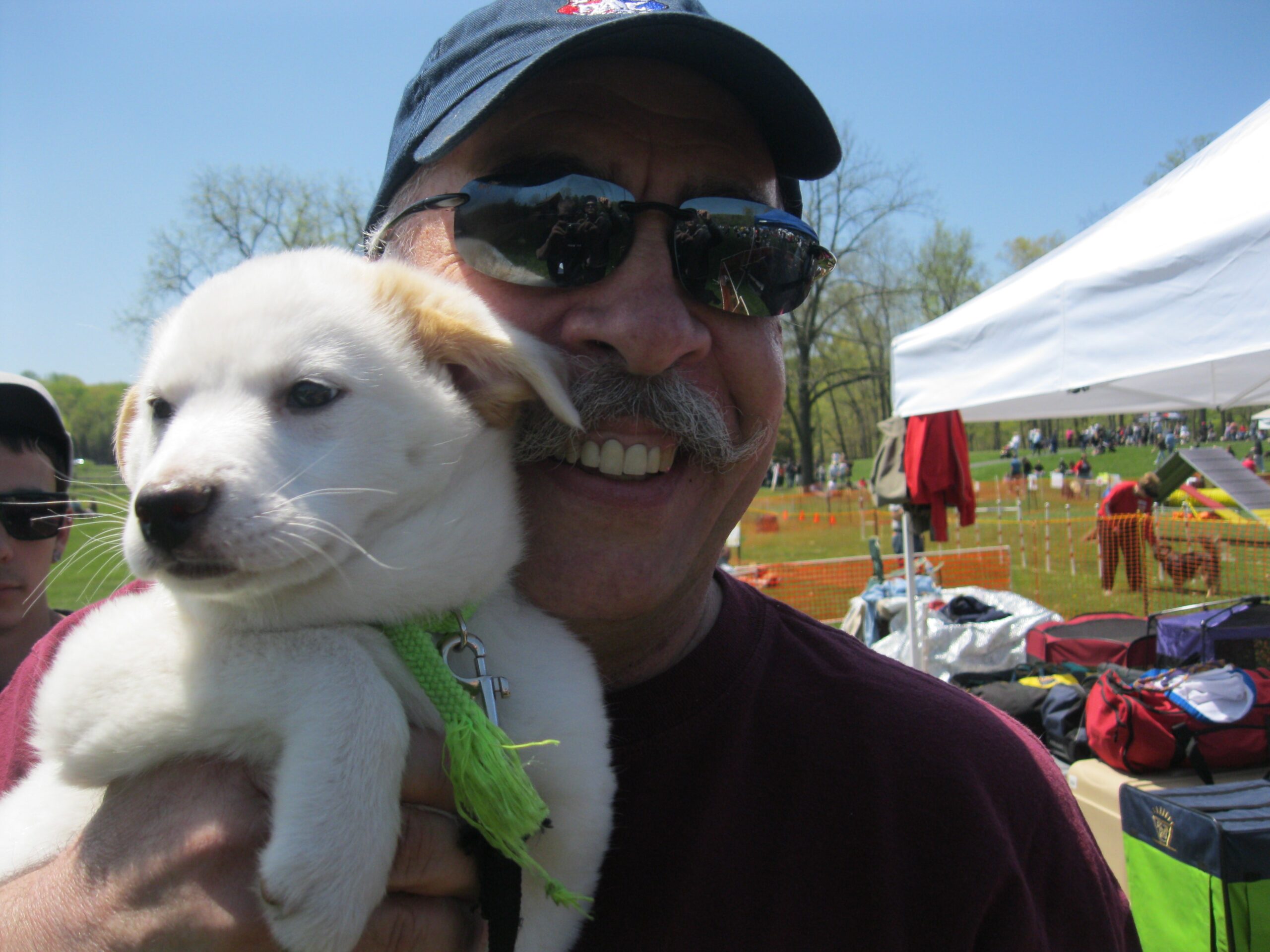 career mostly in the Philly market. When the live action version of Disney’s 101 Dalmatians came out, it created a problem in a lot of U.S. cities and towns because that breed is not for everybody.
career mostly in the Philly market. When the live action version of Disney’s 101 Dalmatians came out, it created a problem in a lot of U.S. cities and towns because that breed is not for everybody.
As John explains, “Within six months of the movie’s release, over 120 Dalmatians in the Philly area were put up for adoption. I started working with rescue and shelter groups long before it became popular. But this put me in high gear, and the ‘Dog Walk’ was born.”
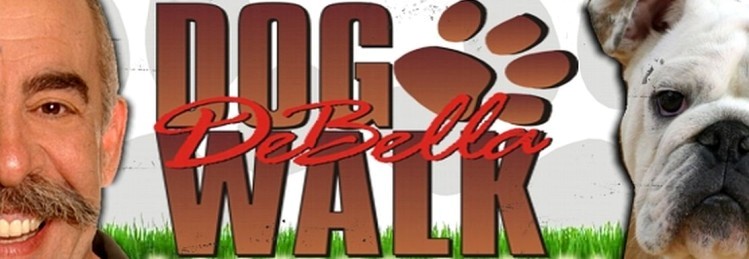
In the Philadelphia market, John made it an annual signature event at Classic Rocker WMGK, drawing a large population of canines and their accompanying humans. Need I remind you the latter group carries those little meters around?
And as John reminds us, “Someday, I hope to be the type of person my dog believes I am.”
I would be remiss if I didn’t give massive canine props to perhaps the biggest advocate of dogs in all radio, WDHA programmer and host, Terrie Carr. She has done SO much on behalf of dogs, including this annual calendar:
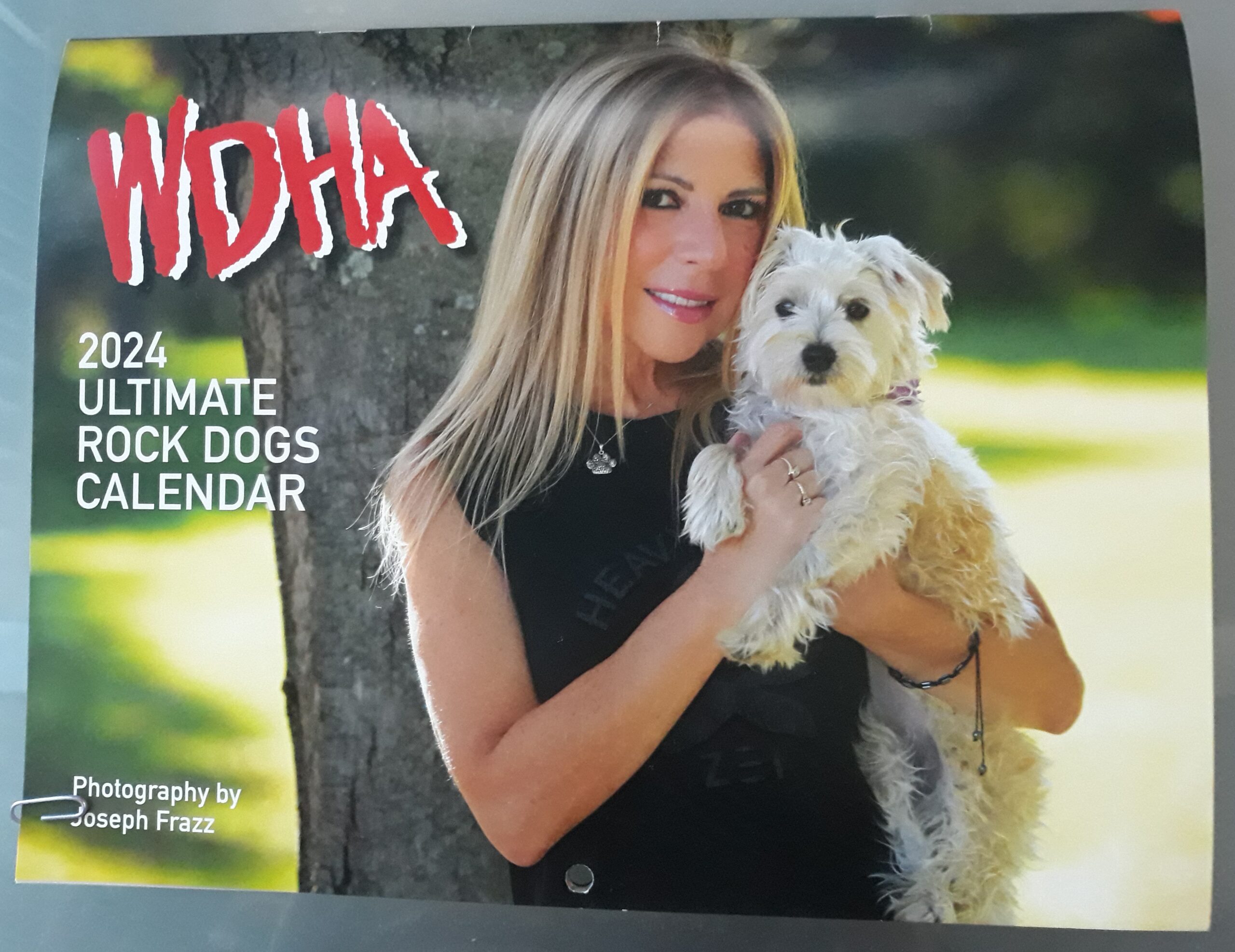
In the world of radio, it is hard to go wrong with promotions, public service events, and fundraisers that revolve around dogs.
And that brings me to revenue generation, because you know it drives me nuts when radio leaves relatively easy money on the table. The numbers suggest many radio stations are in a position to sell a substantial amount of “doggie merch,” and in the process, raise money for worthwhile causes that support our furry buddies.
 It seems like more and more – especially in cold climates – our canines are outfitted in often elaborate outfits and costumes. This is especially the case around holidays like Christmas, Halloween, and the Fourth of July. Creative owners need no excuses for decking out their dogs.
It seems like more and more – especially in cold climates – our canines are outfitted in often elaborate outfits and costumes. This is especially the case around holidays like Christmas, Halloween, and the Fourth of July. Creative owners need no excuses for decking out their dogs.
So, when a I saw a pictorial story in Loudwire the other day, it reminded me of merch opportunities. Writer Corey Irwin did the research on the story, and it’s quite in-depth.
It turns out many Classic Rock bands – among them, the Beatles, Aerosmith, and Pink Floyd – sell officially licensed doggie duds.
If you want merch for other artists and groups, you often have to go the Etsy route. But fear not – a wide variety of performers have shared their logos with Fido, Lucy, and Cooper.
Below are a few of my favorites, but you can check out a wide array of band merch for dogs here. And if you want something personalized for your dog, there are literally thousands of artisans on Etsy ready to take your order.
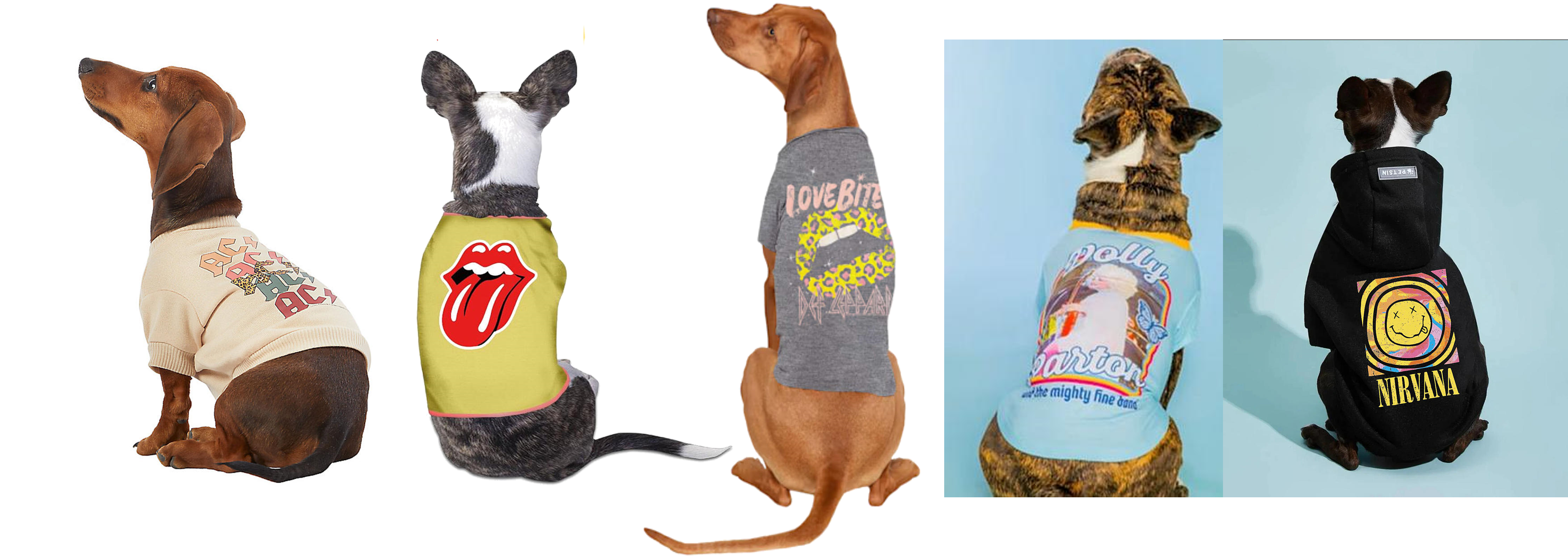
I perused a number of online station stores looking for dog merch and came up empty. If your station offers them, post a photo here on my socials. There’s a lot of “rock dogs” out there, and it would be nice to some of them sporting your station’s logo.
Clearly, there’s an opportunity for some brands and personalities who are all-in for dogs. Branded merch can be a great fundraising tool, and it’s hard to imagine more buzzworthy clothing than this stuff.
Sadly, I did not run across doggie clothing for “Diamond Dogs,” “Black Dog,” or “Hounds of Love.”
But I’m still looking.
Who wants a treat?
Thanks for the reminder, Elnora.
- For Radio, The Perils Of Rebranding - May 30, 2025
- There’s No Failure In Radio - May 29, 2025
- It’s Not An Innovation If You Can’t Make It Work – And Last - May 28, 2025




Superb article as always.
Like many other small-market radio stations in the USA, my station features the local humane society every Tuesday with an adoption segment. They bring in a dog/cat/ferret/whatever, we chat on the air while video cameras orbit the studio, and by noon we’ve posted a Facebook video and photos of the adoptable critter. We don’t make money from it, but the good will it generates is quite valuable.
The crowning touch: my wife owns a mobile pet grooming business, and now and again she will groom several pooches at the Society for free to make them more adoptable. And she sponsors the on-air segment. Three-way win.
As you note, not everything a radio station does has an ROI – whether it’s ratings or revenue. There are things we that are congruent with the audience, the market, and what a radio station stands for. It’s how you build a brand. And thanks for sharing the story about how your wife fits in to the equation.
What a great thing, Fred. They say that animals (and babies) will make things happen. I’ve been lucky enough to work with animal welfare organizations since the 80s in Cincinnati (thanks to “Kat” Thomas). In San Diego I’ve been part of events with The San Diego Humane Society and Helen Woodward Animal Center since 1999. It’s allowed me to get to know a lot of “competing” radio folks in town. All of that ratings stuff goes away when a wet nose and a wagging tail sits before you. The love with animals goes both ways!! Thank you for “panting” it out to the world, Fred. Radio CAN go to the dogs and be better for it.
The feeling of using your station, its power, and its audience to better the community, as well as helping animals in need, is pricelss. Thanks for the reminder.
All I can say to this post is “woof!”
I’ll take it!
Tropicana Stereo is the name of a network of music stations in Colombia that had its best moment between 1995 and 2005, when it was number 1 in several cities.
Tropicana has always been known for playing Salsa and other tropical genres, but with the arrival of Reggaeton the station began to lose its audience and was relegated to secondary places in the rankings.
After many format changes, they finally found a winning formula: in a city as poor and problematic as Cali, they appropriated the positioning of being the station that serves the people, with large social content campaigns and a lot of presence in the streets.
But what has given them the most recognition is the permanent promotion of care for pets in general and dogs in particular, especially those abandoned that wander the streets.
They even opened a fast food restaurant whose economic benefits are given to animal protection associations that collect stray dogs, which are put up for adoption through strong campaigns generated by the station.
In large part, and thanks to these campaigns, Tropicana recovered the number 1 audience position in Cali, and its image positioning has been adapted in the other stations that the network has in the rest of the country with great success.
They call stray dogs “fuzzy”, and this term has gone viral and is used throughout the country by ordinary people to refer to their dogs. It’s a new generic name for dogs.
The use of pets, and dogs in particular, thus became a great tool for positioning, audience, and involvement with the community.
TIto, this is a great story, and an amazing accomplishment. Aside for people’s love of their pets, Tropicana’s efforts likely helped them stand out from the pack. Appreciate you sharing this.